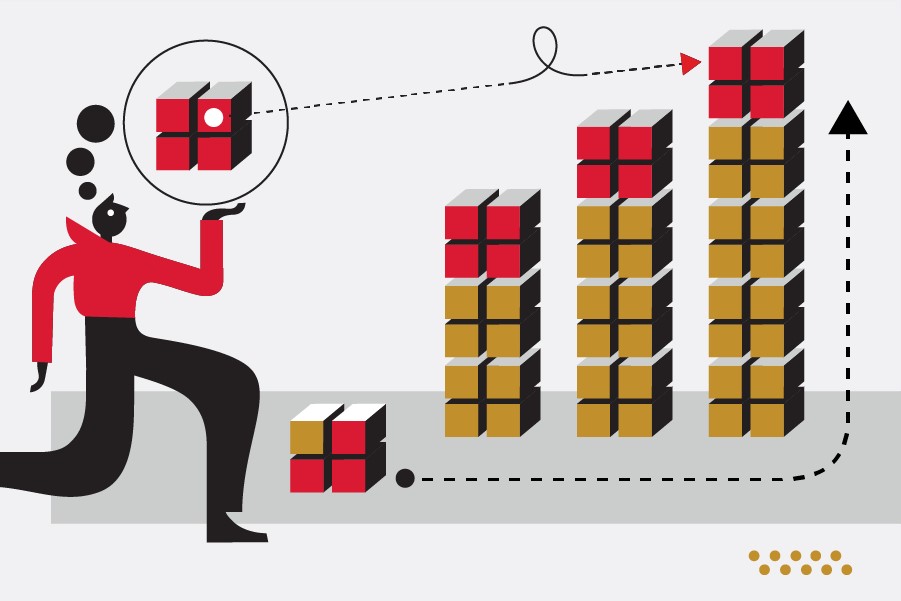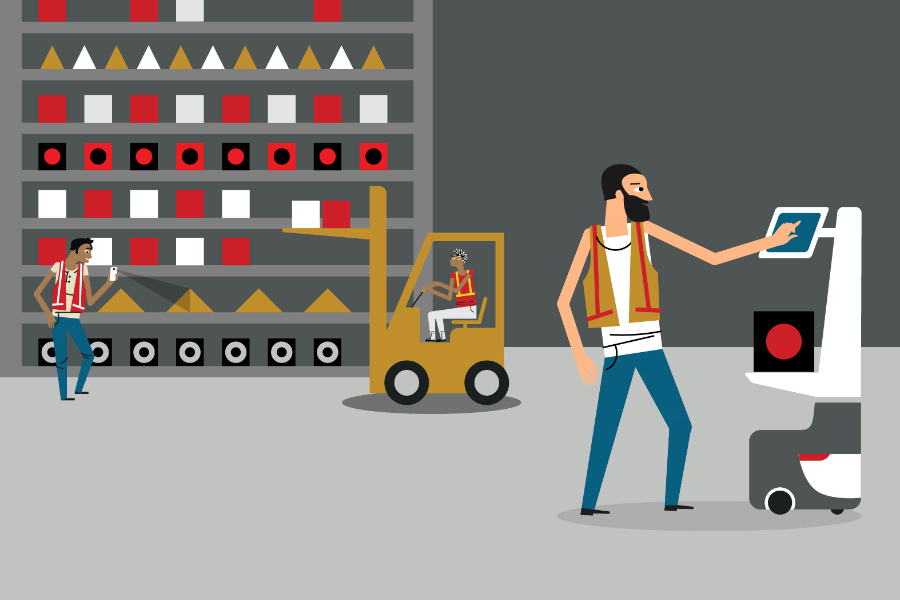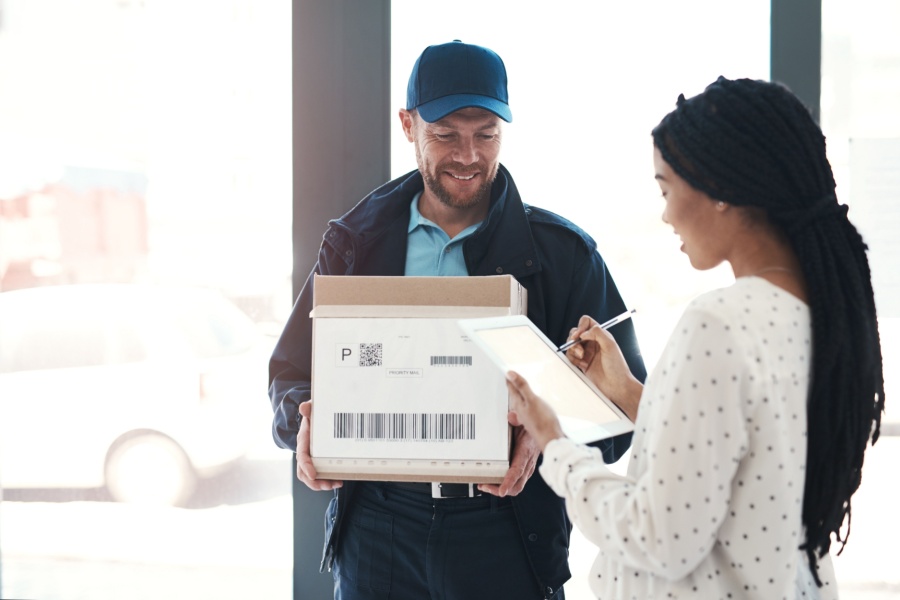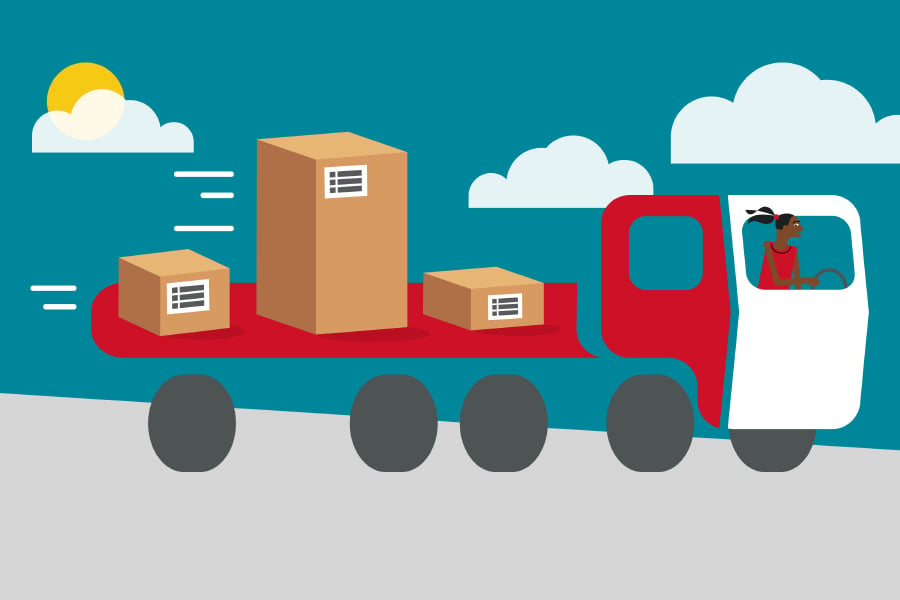Updated January 17, 2025
E-commerce has become a cornerstone of retail operations. With the increasing demand for online shopping, businesses need to adapt and streamline their operations to meet customer expectations. One key aspect that plays a pivotal role in the success of an e-commerce business is scalable fulfillment capabilities.
Choosing the right e-commerce fulfillment strategy is a tricky business. Just as you’ve gotten a system underway that works for your current needs, you can experience a peak or trough in order volumes that throws everything out of balance.
This is a common problem for emerging retailers who are experiencing rapid phases of growth. But if this isn’t managed well, the benefit from higher sales can be erased by escalating fulfillment costs – unless you’re using a scalable fulfillment strategy it’s responsive to your needs.
In this post, we uncover at the importance of scalable fulfillment and what your business should look for to find a scalable fulfillment 3PL partner.
What is scalable e-commerce fulfillment?
Scalable e-commerce fulfillment refers to an e-commerce business or 3PL’s ability to adjust its fulfillment strategy to accommodate fluctuating order volumes. This includes but is not limited to labor levels, automation, warehouse management, and order management.
If just one of these areas is unable to scale effectively when needed, this has a knock-on effect on the efficiency of your fulfillment operation, resulting in bottlenecks or errors that negatively impact customer satisfaction.
The scalability of fulfillment isn’t always a startup’s priority when they first start out, as pricing and proximity to their premises normally take precedence. Moreover, progressing to the point of handling hundreds of orders per day can feel a long way off for emerging online stores.
Despite this, it’s critical that businesses build scalability into their fulfillment plans – and into their criteria for choosing a 3PL (third-party logistics) provider.
Why scalable fulfillment matters
Self-fulfillment will only get you so far
Almost every e-commerce store will get started by self-fulfilling its orders. This is the cheapest option and gives you direct oversight over the fulfillment process to ensure that packing is carried out exactly how you want it.
It’s also very easy to get started with in-house fulfillment; all you need is a storage space for your inventory in the form of an office or garage, packaging materials, and shipping labels. When you’re only dealing with a handful of orders each day through your e-commerce platform, this is by far the most cost-effective approach.
But when your order volumes (and shipping costs) start to spiral, your business can easily find itself scrambling to fulfill orders within the estimated timeframe. Suddenly, you need more people, more packaging, and better inventory management. It becomes more time-consuming to keep track of the orders coming in, and whether you have the SKUs needed to fulfill them. This can lead to lengthy delays with order fulfillment and shipping – and that means unhappy customers who likely won’t shop with you again.
A lack of scalability is a core issue with self-fulfillment. While it works when your business is small, self-fulfillment quickly falls apart when you need to start investing in physical and technological infrastructure to keep meeting customer expectations.
Maintaining the integrity of your orders
When you only have a small number of orders to worry about each day, it’s much easier to be diligent in checking each one to ensure the contents are accurate. This also gives merchants a lot of autonomy to create attractive unboxing experiences for their customers. This is why it tends to be independent online sellers, rather than large retailers like Amazon, who are known for the quality of their unboxings.
However, elaborate packing becomes a lot more challenging as your order volumes grow. If you decide to outsource to a 3PL, many providers will not have the resources or workflows to replicate the same level of care with your orders. Including value-added extras such as handwritten notes also becomes difficult.
If the quality of your unboxing begins to wane as your brand grows, this could impact the loyalty of established customers who feel that the brand experience has become watered down. This is why you need to have a plan for scaling fulfillment as your order volumes grow.
You need to manage the peaks – and the troughs
When we talk about the scalability of e-commerce fulfillment services, it’s easy to think solely about scaling up for peak season, but not about how to scale down afterward.
It’s not uncommon for e-commerce companies to invest in automation technologies and fulfillment infrastructure. Sometimes this is done without research or testing, and the technologies implemented don’t help optimize your operation and raise costs.
Even with the very best demand forecasting to hand, predicting your order volumes is a little like crystal ball-gazing. Your next peak could be next week, next month, or even a year away. Maintaining a ‘just in case’ approach for your fulfillment operation is extremely costly and difficult to undo if you’ve invested in extra warehouse space or on-boarded your staff onto new fulfillment software.
Instead, you need a responsive order fulfillment process that can be scaled up or down as your business requires it. To avoid making an expensive investment in your own facility that could cost you dearly at quieter parts of the year, consider partnering with a fulfillment provider who can put their resources and network at your disposal.
How to prioritize scalability when looking for a fulfillment partner
Here are a few things to add to your checklist when looking for a scalable e-commerce fulfillment provider:
A nationwide network of fulfillment centers
Partnering with a 3PL who can create a multi-node fulfillment strategy for your business is the key to ensuring scalability during intense peaks. If you have a centralized fulfillment plan with a single facility, this can quickly become overloaded and result in massive bottlenecks due to the difficulty of securing overflow fulfillment space.
Having multiple nodes for fulfillment and warehousing makes it possible for your business to scale fulfillment up and down at different regional locations as required. For example, if you’re seeing a surge in orders in the Northeast, your provider can help you to find additional space at a local facility in their network so you can achieve faster delivery times, or obtain extra warehousing space close to a seasonal pop-up store to streamline accessibility to inventory.
Automated fulfillment solutions
It’s challenging for fulfillment providers to predict exactly how much seasonal staffing they’re likely to need to get through the peak. With ongoing labor shortages exacerbated by the COVID-19 pandemic, it’s also never been more difficult to hire and retain staff. So, seeking out a 3PL that can alleviate these pressures through automation helps to achieve order fulfillment optimization and make scaling more seamless.
Scalable technology stack
You don’t just want a fulfillment partner’s e-commerce technology to work for the next few months; you want it to be suitable for your needs for years to come. While their capabilities may be suitable for your current order volumes, what happens when you start experiencing 500, 1,000, or 2,000 orders per month?
This might seem like a long way off, but when it’s an important consideration when order volumes can escalate with little warning. Be sure to enquire how a potential partner’s technology stack cab handle increases in orders.
Value-added services that can scale
Many 3PLs offer value-added services such as subassembly, kitting, and custom packaging to their clients. However, these services can cap out once your order volumes reach a certain level. If additions such as branded packaging and promotional items are important to your business, it’s important to check whether prospective partners are able to deliver these services at scale – without compromising the quality of the post-purchase experience for your customers.
Customer support
Delivering optimized fulfillment at scale isn’t just about the e-commerce fulfillment process itself, but whether you can provide your customers with the attentive customer service they expect regarding their orders. 46% of consumers expect companies to respond to service queries faster than four hours – a rapid response which many businesses will struggle to reach during peak.
To avoid anxious customers experiencing delivery anxiety, look for a partner who can provide you with wraparound support services, such as real-time order tracking and self-service returns. This helps to alleviate pressure on your customer care and so they can focus on more complex issues.
Sodastream: Achieving scalability with Ryder during COVID-19
The scalability of Ryder’s nationwide fulfillment network was invaluable to Sodastream when the brand experienced logistical difficulties during the onset of the pandemic. By shifting capacity between their East Coast and West Coast facilities, Ryder enabled SodaStream to make a seamless pivot to managing higher online order volumes.
“When the pandemic took hold in March-April 2020, we were faced with our online order volumes surging beyond what we would normally handle even during peak season,” said Robert Hedwall, Manager of Supply Chain and Logistics at SodaStream. “Ryder was able to scale up e-commerce fulfillment activities at our West Coast location ten-fold within just two weeks, and then scale down just as efficiently when normal patterns resumed in May. Their capacity to meet our newfound needs so quickly made them an invaluable partner during such a challenging time.”




